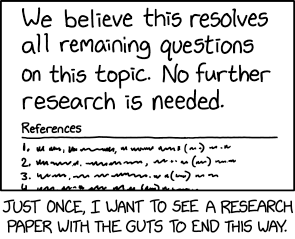
Intermittent Fasting Associated With Higher Risk Of Dying From Heart Disease, New Study Says
A new study served some food for thought after researchers dug into the ticking heart of the time-restricted eating schedule, a dietary trend that has swept up many adults in recent times.
More than 20,000 adults participated in the new preliminary study, which highlighted that those who restricted their eating schedule to an 8-hour window during the day had a 91% higher risk of death from cardiovascular disease.
The time-restricted eating schedule, a type of intermittent fasting, involves limiting the number of hours during which an individual consumes food in a day. Most people who follow this diet adopt a 16:8 eating schedule, which means they eat whatever they want during an 8-hour window during the day and then deprive their tummies of any food for the next 16 hours.
Initially, this time-restricted eating was lauded for having waist-trimming benefits in addition to improving heart health. However, the new study pointed to different results, according to a press release.
The time-restricted eating schedule is a type of intermittent fasting and involves limiting the number of hours during which an individual consumes food in a day
Image credits: The Lazy Artist Gallery / Pexels
“Restricting daily eating time to a short period, such as 8 hours per day, has gained popularity in recent years as a way to lose weight and improve heart health,” said the study’s senior author, Victor Wenze Zhong, Ph.D., a professor and chair of the department of epidemiology and biostatistics at the Shanghai Jiao Tong University School of Medicine in Shanghai, China. “However, the long-term health effects of time-restricted eating, including [the] risk of death from any cause or cardiovascular disease, are unknown.”
After studying the long-term impact of time-restricted eating, the researchers of the study concluded that people who followed a pattern of eating their food across an 8-hour window per day had a 91% higher risk of death due to cardiovascular disease.
The time-restricted eating schedule was initially touted as having health benefits and waist-loss effects
Image credits: freestocks.org / Pexels
The researchers further said that eating across a duration of more than 16 hours per day was associated with a lower risk of cancer mortality among people with cancer.
The analysis also revealed that time-restricted eating did not lower the overall risk of death from any cause.
“We were surprised to find that people who followed an 8-hour, time-restricted eating schedule were more likely to die from cardiovascular disease. Even though this type of diet has been popular due to its potential short-term benefits, our research clearly shows that, compared with a typical eating time range of 12-16 hours per day, a shorter eating duration was not associated with living longer,” Zhong said.
People who consumed food within an 8-hour window and then fasted for 16 hours had a 91% higher risk of dying from heart disease
Image credits: Karolina Grabowska / Pexels
“It’s crucial for patients, particularly those with existing heart conditions or cancer, to be aware of the association between an 8-hour eating window and increased risk of cardiovascular death. Our study’s findings encourage a more cautious, personalized approach to dietary recommendations, ensuring that they are aligned with an individual’s health status and the latest scientific evidence,” he went on to say. “Although the study identified an association between an 8-hour eating window and cardiovascular death, this does not mean that time-restricted eating caused cardiovascular death.”
Explore more of these tags
Very interesting! But! As all of you who follow science news know, and hate - "more study is indicated." The ugly truth of a lot of research, and particularly medical. Those who remember my constant snarking about "statistics" will enjoy my take here- their statistical work is sound - but limited. The limits fit the common situation where later work, using different statistical analyses - may directly contradict what they found here. Specifically, a different subject population, a different fasting regimen - could show entirely different outcomes- it's not uncommon in the medical realm. This is the first study I'm aware of that is looking at this kind of long term effects; we definitely need more. Upshot- take this seriously, if this is YOUR fasting type- think about it, measure what you can - change or don't - but abandon fasting? no- there are demonstrated benefits.
Intemittent fasting hasn't been around long enough to produce death statistics. More likely IF is practiced by people who have been overweight for some time and obesity is a known cause of heart disease.
Potentially it's also associated with people who cram in a lot of calories in a short time rather than spreading them out. Possibly the risk comes from too much sodium, or fat (or something else) in too short a window. It'd also be interesting to see whether the person who eats over 16 hours is eating the exact same food just spread over time, or whether the actual food is different. eg: The 16 hour person probably has breakfast (cereal, fruits, milk) and the 8 hour person likely skips breakfast so goes straight for lunch. So it could be the type of food being eaten in one of the approaches is more protective of heart health.
Load More Replies...Very interesting! But! As all of you who follow science news know, and hate - "more study is indicated." The ugly truth of a lot of research, and particularly medical. Those who remember my constant snarking about "statistics" will enjoy my take here- their statistical work is sound - but limited. The limits fit the common situation where later work, using different statistical analyses - may directly contradict what they found here. Specifically, a different subject population, a different fasting regimen - could show entirely different outcomes- it's not uncommon in the medical realm. This is the first study I'm aware of that is looking at this kind of long term effects; we definitely need more. Upshot- take this seriously, if this is YOUR fasting type- think about it, measure what you can - change or don't - but abandon fasting? no- there are demonstrated benefits.
Intemittent fasting hasn't been around long enough to produce death statistics. More likely IF is practiced by people who have been overweight for some time and obesity is a known cause of heart disease.
Potentially it's also associated with people who cram in a lot of calories in a short time rather than spreading them out. Possibly the risk comes from too much sodium, or fat (or something else) in too short a window. It'd also be interesting to see whether the person who eats over 16 hours is eating the exact same food just spread over time, or whether the actual food is different. eg: The 16 hour person probably has breakfast (cereal, fruits, milk) and the 8 hour person likely skips breakfast so goes straight for lunch. So it could be the type of food being eaten in one of the approaches is more protective of heart health.
Load More Replies...
 Dark Mode
Dark Mode 

 No fees, cancel anytime
No fees, cancel anytime 





















































46
16